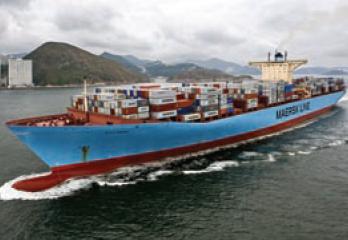Although most ocean carriers are predicting more slow sailing, P3’s members Maersk Line, MSC and CMA CGM intend to maintain and even improve average vessel speeds in their recently announced schedules.
The P3 alliance says the average vessel speed deployed from Asia to Northern Europe from 2Q 14 will be kept at 19.5k, whilst on the return journey it will even increase slightly from 14.4k to 14.7k. This means that other carriers will more-or-less be compelled to follow suite at a time when they can ill afford it, not having the same economies of scale.
 This will put pressure on other carriers to spend more money on fuel, although the jury is still out on its benefits. For example, at the recent Intermodal 2013 conference in Hamburg, a number of shippers are reported to have complained about long transit times, with some questioning why ocean carriers did not try harder to differentiate themselves through speed instead of price. However, ocean carriers argue that whenever this has been tried in the past, shippers have generally run away from paying a ‘speed premium’.
This will put pressure on other carriers to spend more money on fuel, although the jury is still out on its benefits. For example, at the recent Intermodal 2013 conference in Hamburg, a number of shippers are reported to have complained about long transit times, with some questioning why ocean carriers did not try harder to differentiate themselves through speed instead of price. However, ocean carriers argue that whenever this has been tried in the past, shippers have generally run away from paying a ‘speed premium’.
And according to reports on a recent survey of 1,600 shippers carried out by APL in the US, the most important feature of ocean carriers’ services is schedule reliability, after which transit time is fairly low down on the list of priorities.
Photo: No reduction in speed for P3 vessels between Asia and Northern Europe.
P3 Explained
P3 is a long-term operational alliance between Maersk Line, MSC Mediterranean Shipping Company S.A. and CMA CGM on East – West trades that aims to improve and optimise operations and service offerings. The network operates 255 vessels on 29 loops on three trade lanes: Asia – Europe, Trans-Pacific and Trans-Atlantic. Maersk Line contributes approximately 42% of the capacity (including the new Triple-E ships), MSC contributes approximately 34% of the capacity; and CMA CGM the remaining 24%.